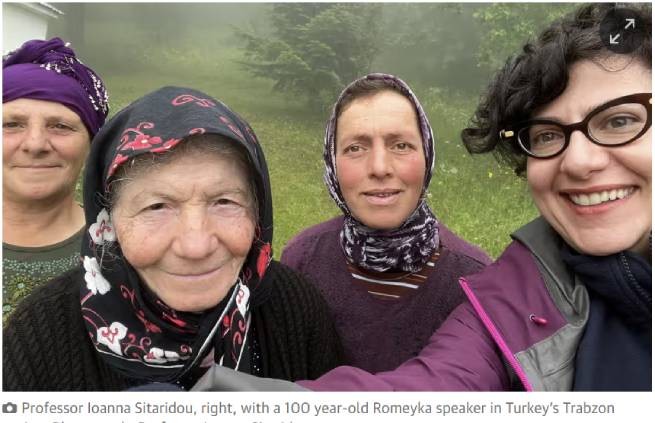Linguists have built a “living bridge” to the ancient world by studying the Greek dialect, which is on the verge of extinction.
Romanian dialectderived from ancient Greek, has more in common with the language of Homer than with modern Greek, tells The Guardian. So say researchers from the University of Cambridge. Joanna Sitarida, professor of Spanish and historical linguistics, found that The Roman dialect comes from the Hellenistic form of the language spoken by people before our era.
It shares similarities with the ancient Greek language, and one of the proofs is the infinitive form of the verb, which in the Roman dialect is still replaced by the form from the ancient Greek language, she says. For example, speakers of modern Greek say: “I want me to go”, but in the dialect language it will be: “I want to go”, like the ancient form.
The linguist explains that this structure became obsolete in all other varieties of Greek by the beginning of the Middle Ages. In the course of her research, she concluded that “Romanic is the sister, not the daughter, of modern Greek,” a conclusion that refutes the claim that modern Greek is “isolated,” that is, not related to any other European language.
Today it is unknown how many people in the world speak the Roman dialect. It has no written form and is preserved in oral form in the mountain villages around the city of Trabzon in northern Turkey. Sitaridou notes:
“The adoption of Islam in the countries of Asia Minor was usually accompanied by a linguistic transition to Turkish, so Roman was mainly retained by communities in the valleys.”
In the 1923 Treaty of Lausanne, Turkey and Greece exchanged Christian and Muslim populations, but since the Romanian-speaking communities in the Trabzon region are Muslim, they remained in their homeland. However, as a result of extensive contact with the Turkish language, cultural stigma and migration, the language is now in danger of extinction, according to Sitaridou. Most native speakers in the region are over 65 years old, and fewer and fewer young people are learning the language.
With the hope that Romanian speakers might be scattered around the world, Cambridge scientists have created a recording project where they invite Romanian speakers from around the world to upload a recording of themselves speaking the language.







More Stories
Six Greek high school students win medals at International Mathematical Olympiad
Olympic Games: Greek Delegation Athletes Head to Paris
Big "police purge" on Athos